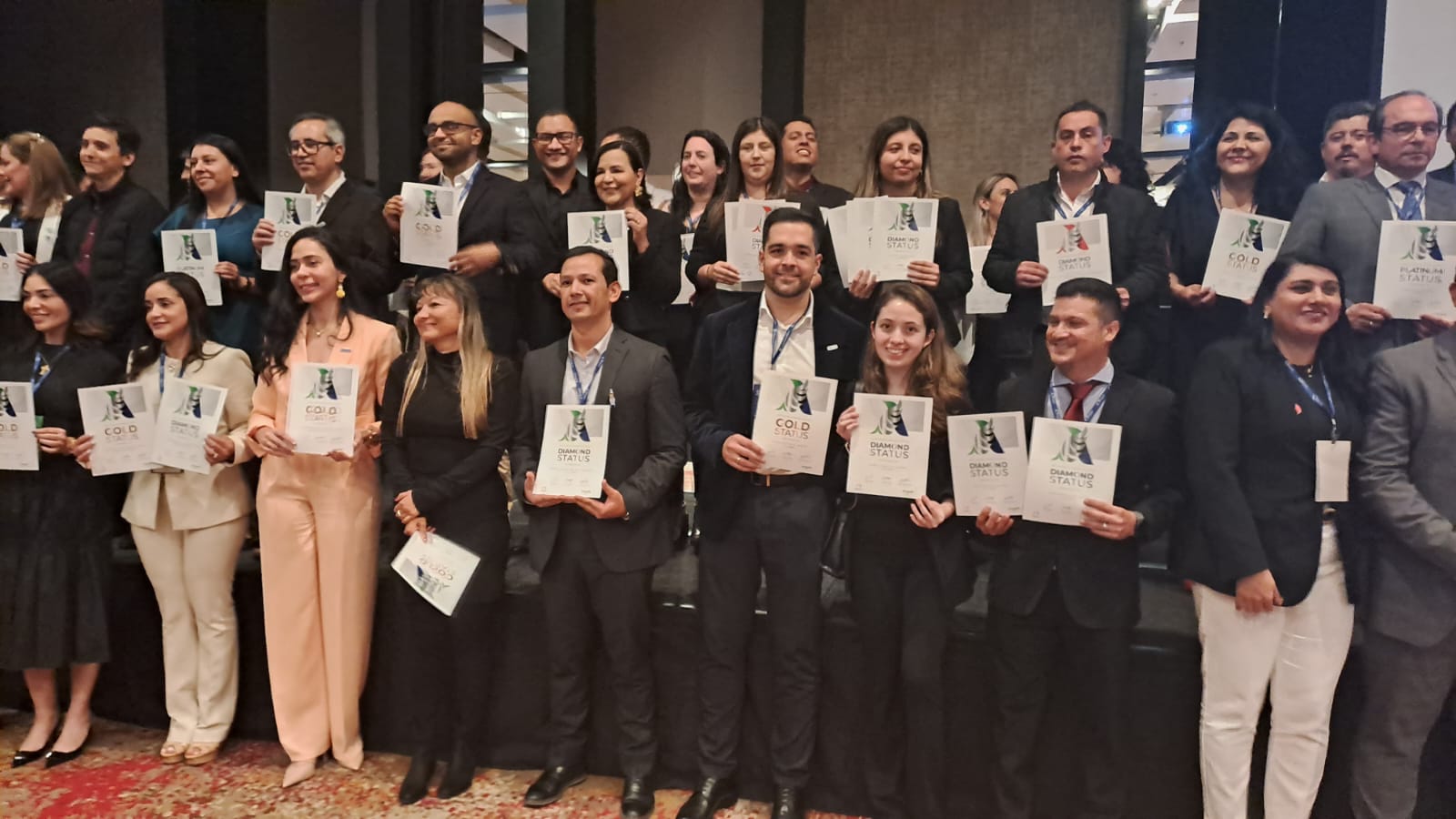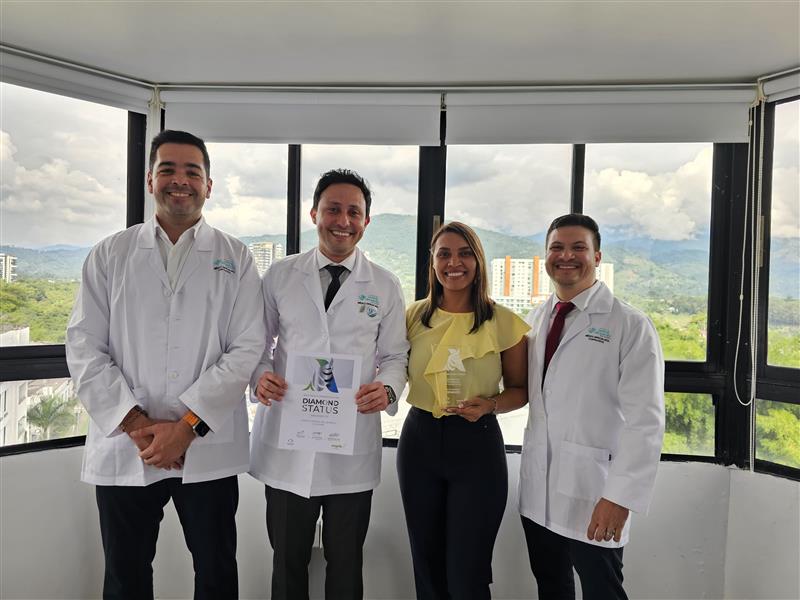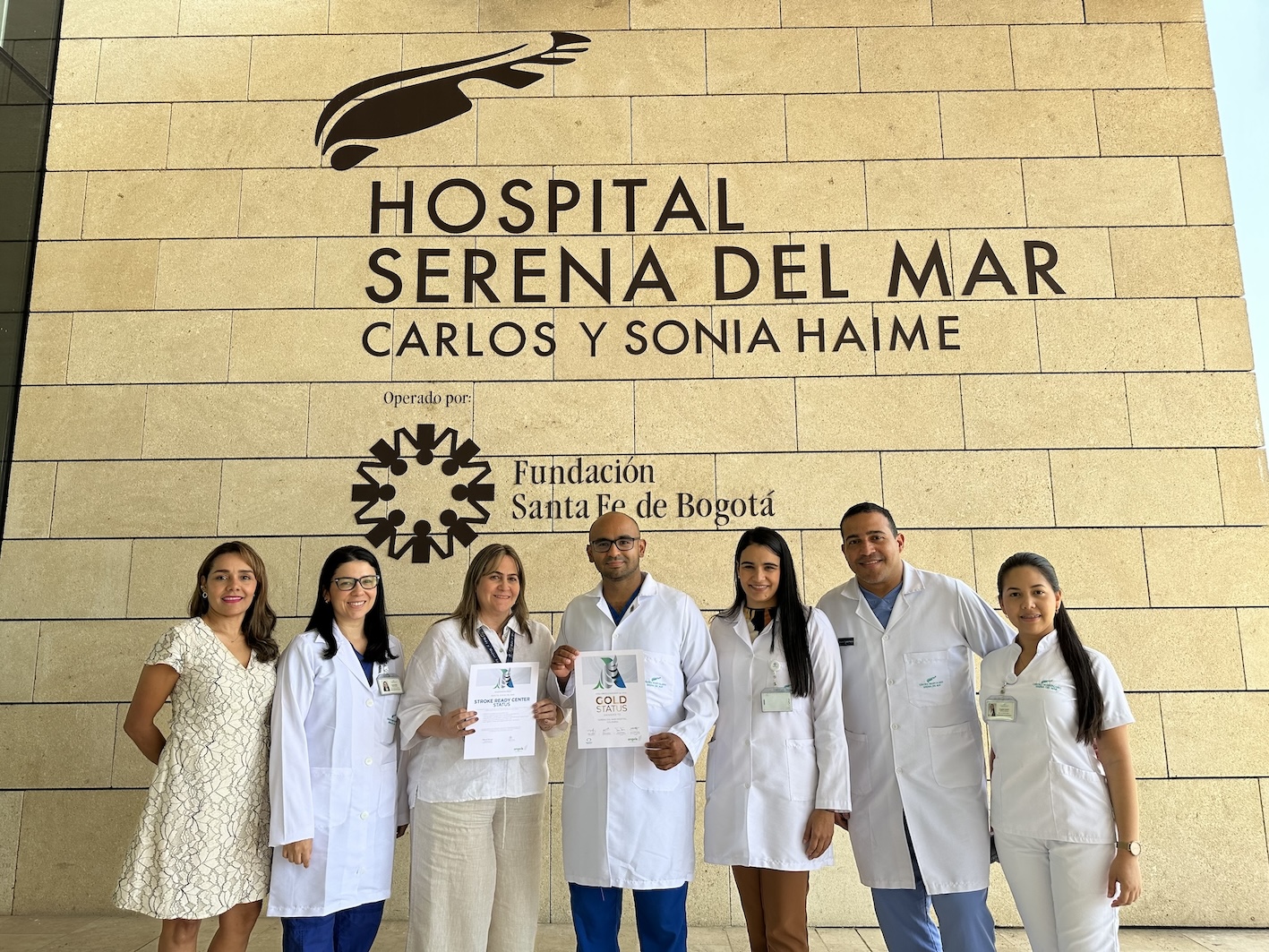Lorsqu’un ancien collègue a subi un accident vasculaire cérébral et n’a pas reçu de traitement à temps, il s’agissait d’un tournant pour l’hôpital Cruz Roja en Cordoue. Leur parcours vers l’arrivée dans le réseau des accident vasculaire cérébral dans leur région a commencé par un appel à la consultant Angels Alicia Arjona...
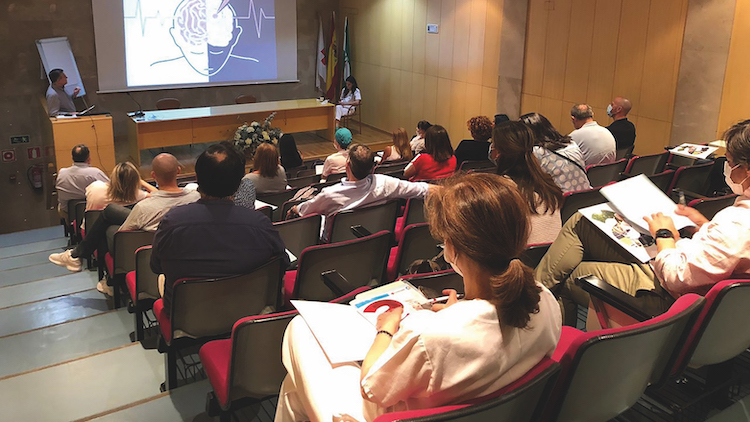
Travailler à l’ hôpital signifie que vous voyez des patients présentant tous types de symptômes et de douleurs tous les jours. La pandémie a amené encore plus de patients, beaucoup qui ne pouvaient pas être sauvés. Mais que se passe-t-il si un patient se présente à l’hôpital avec un type d’accident vasculaire cérébral particulier ? Et si votre hôpital n’est pas équipé pour diagnostiquer et traiter efficacement ces patients ?
Pire encore, que se passe-t-il si ce patient est quelqu’un que vous connaissez personnellement, comme un collègue par exemple ? Cette expérience va-t-elle briser votre esprit ou vous motiver à apporter un changement ? Dans le cas de l'hôpital Cruz Roja de Cordoue (HCRC), cette expérience a conduit à un nouveau départ.
Un médecin récemment retraité de l’hôpital s’est rendu aux urgence urgences pour signaler qu’il ne se sentait pas bien depuis plusieurs heures. Les médecins présentent des symptômes de vertige, un accident vasculaire cérébral fréquent mimant et liés à ses antécédents de fibrillation auriculaire. Il est resté à l’hôpital pour être surveillé et pris en charge. Lorsqu'il a chuté plus tard en essayant de marcher, ils ont décidé de l'amener à la salle de TDM et ont découvert un infarctus cérébral. À ce moment-là, il était malheureusement trop tard pour faire quoi que ce soit contre son accident vasculaire cérébral.
Le code des AVC à Cordoue et dans toute l’Andalousie précise que les AVC sont traités dans les hôpitaux publics qui font partie du réseau AVC. Cordoue possède l’un de ces hôpitaux, un centre complet, et si l’un des autres hôpitaux de la ville reçoit un patient atteint d’AVC, il envoie les clichés de TDM à ce centre pour obtenir des instructions supplémentaires et le transférer.
Mais Cordoue est une grande ville avec une population importante pour n’avoir qu’un seul centre neuro-vasculaire. C’est pourquoi, malgré le fait d’être au milieu d’une pandémie, la direction de l’unité de soins intensifs du Dr Noelia Munoz et du service de neurologie du Dr Roberto Valverde du HCRC ont décidé de commencer à traiter les patients victimes d’accident vasculaire cérébral et de mettre en œuvre un code d’accident vasculaire cérébral formel.
Ils ont invité la consultante Angels de la région, Alicia Arjona, à réfléchir aux solutions et aux prochaines étapes à mettre en œuvre dans leurs protocoles. Ils ont ensuite réuni l’ensemble du personnel de l’hôpital, quelle que soit leur fonction, pour annoncer l’objectif : un nouveau groupe de patients commencerait à arriver, et tout le monde devrait disposer des informations essentielles pour reconnaître un AVC et savoir comment procéder.
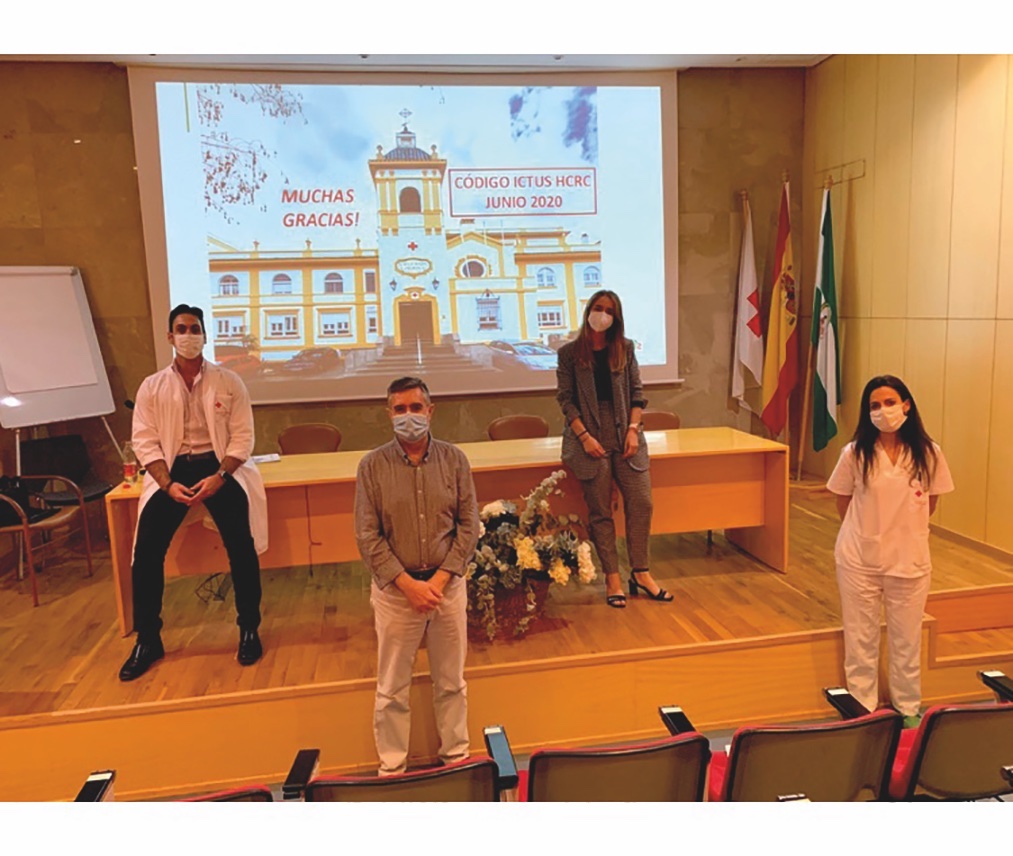 Un groupe de travail pluridisciplinaire a été créé, appelé Brain Team. "Ils ont vraiment compris le pouvoir du travail d’équipe dans les soins neuro-vasculaires", explique Alicia Arjona. "Ils ont inclus tout le monde à l’hôpital dans le développement du parcours et des formations sur l’accident vasculaire cérébral. Et l’équipe s’est efforcée de faire en sorte que tout le monde comprenne qu’ils sont un élément essentiel de ce parcours.
Un groupe de travail pluridisciplinaire a été créé, appelé Brain Team. "Ils ont vraiment compris le pouvoir du travail d’équipe dans les soins neuro-vasculaires", explique Alicia Arjona. "Ils ont inclus tout le monde à l’hôpital dans le développement du parcours et des formations sur l’accident vasculaire cérébral. Et l’équipe s’est efforcée de faire en sorte que tout le monde comprenne qu’ils sont un élément essentiel de ce parcours.
L’équipe a développé un esprit d’amélioration et de collaboration. Le Dr Munoz et le Dr Valverde ont soigneusement organisé des formations qui pourraient impliquer tout le monde sans enfreindre les règles d’hygiène et de distanciation sociale.
Sur plusieurs jours en mai, ils ont enseigné au personnel le triage approprié, la phase hyperaiguë, l’évaluation neurologique du NIHSS et les meilleures pratiques en matière de soins post-aigus. Ils ont choisi l’objectif difficile d’un délai d’attente avant la prise en charge 25 minutes ; des affiches d’Helsinki ont été mises en place pour enregistrer les données, et l’utilisation de listes de contrôle a été établie dans le cadre du protocole.
En travaillant avec Angels, ils ont également mené des simulations composées de deux scénarios différents : un patient ayant subi un accident vasculaire cérébral Covid-19-negative, impliquant les SMU, et un patient ayant subi un accident vasculaire cérébral Covid-19-suspected qui est arrivé à l’hôpital seul.
En mai de cette année, l’hôpital Cruz Roja avait déjà traité avec succès ses 10 premiers patients victimes d’accident vasculaire cérébral aigu. Le traitement a lieu dans la salle de TDM, avec le sac AVC prêt, et toute l’équipe spécialiste de l’accident vasculaire cérébral a régulièrement programmé des réunions de surveillance de la qualité pour identifier les obstacles et continuer à s’améliorer.
Les patients AVC sont toujours hospitalisés en USI, car le nombre de patients Covid-19 ne leur a pas permis d’attribuer des lits à une unité neuro-vasculaire spécialisée. Cependant, cela reste leur objectif qu’ils seront prêts à mettre en œuvre dès que la pandémie le leur permettra.
Non seulement les liens ont été renforcés entre les porteurs de l’hôpital, les médecins urgentistes, les médecins en USI, le SMU, les infirmiers, les neurologues, les administrateurs des données des patient et les radiologues dans l’intérêt de meilleurs résultats pour les patients ayant subi un accident vasculaire cérébral, mais l’hôpital a également adopté l’idéologie Angels et comprend l’importance de la communauté. En partageant leur histoire, ils veulent donner aux autres la confiance nécessaire pour traiter les patients victimes d’accident vasculaire cérébral et les encourager à suivre leurs étapes.
Le Dr Noelia Munoz déclare : "Angelsaidait avec la mise en place d'un changement culturel jusqu'à ce que le bien s'améliore et que le mieux s'améliore. Une chaîne est aussi solide que son maillon le plus faible... une chaîne de prise en charge et de traitement des patients accident vasculaire cérébral à l’hôpital.
"Nous croyons fortement en la chaîne de survie : Il s'agit d'une série d'actions qui, correctement exécutées, réduisent la mortalité associée à ces temps, les interventions sensibles réalisées par des personnes. Il doit être maximisé et optimisé afin que la qualité de vie soit également incluse dans cette survie.
"Nous remercions les patients pour les leçons de la vie quotidienne." C'est un patient ayant subi un accident vasculaire cérébral qui nous a donné l'occasion de changer nos vies, plus que nous sauve un patient ayant subi un accident vasculaire cérébral. Nous sommes maintenant impliqués dans ce projet extraordinaire à cause de lui [le patient]".

